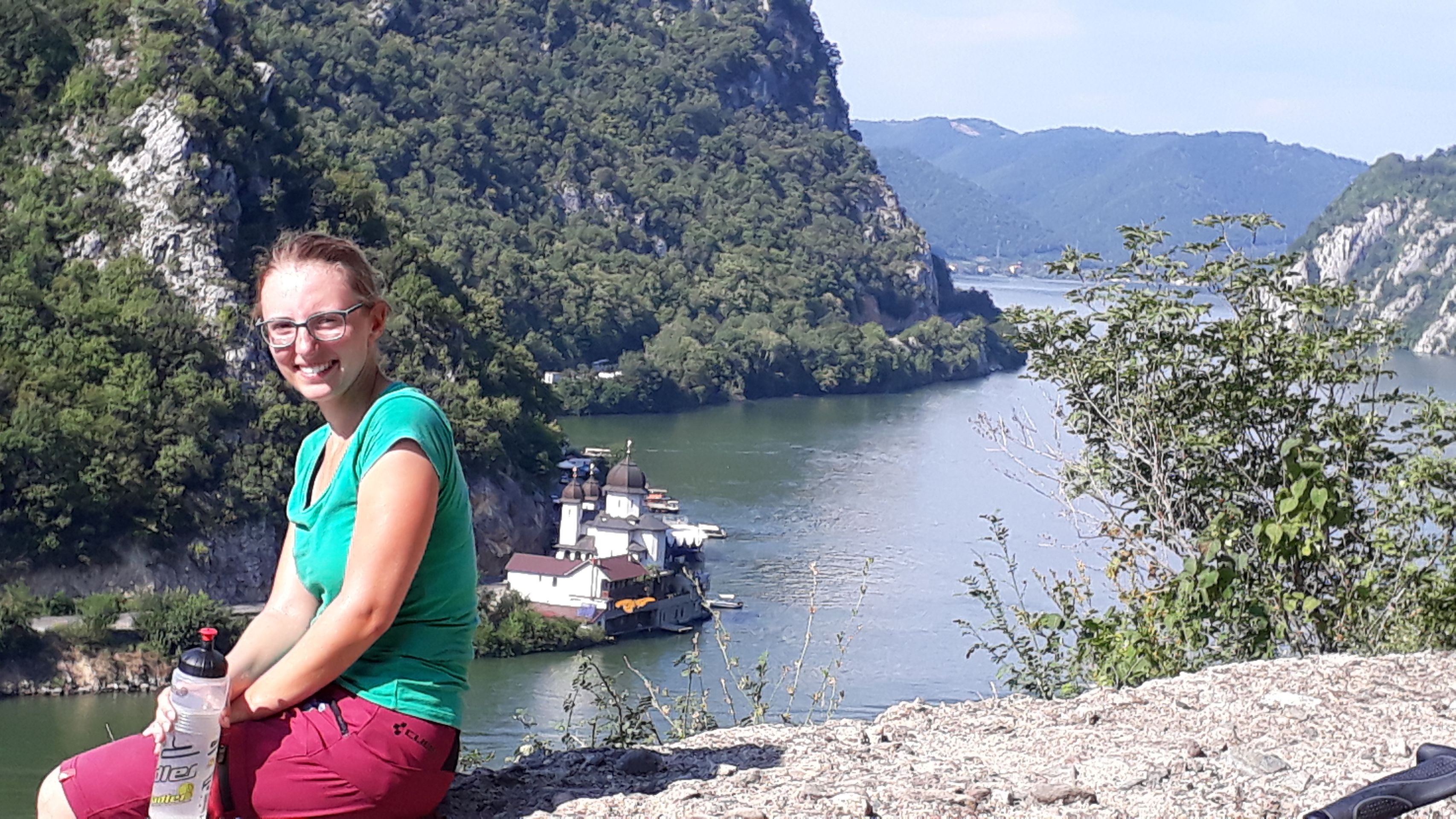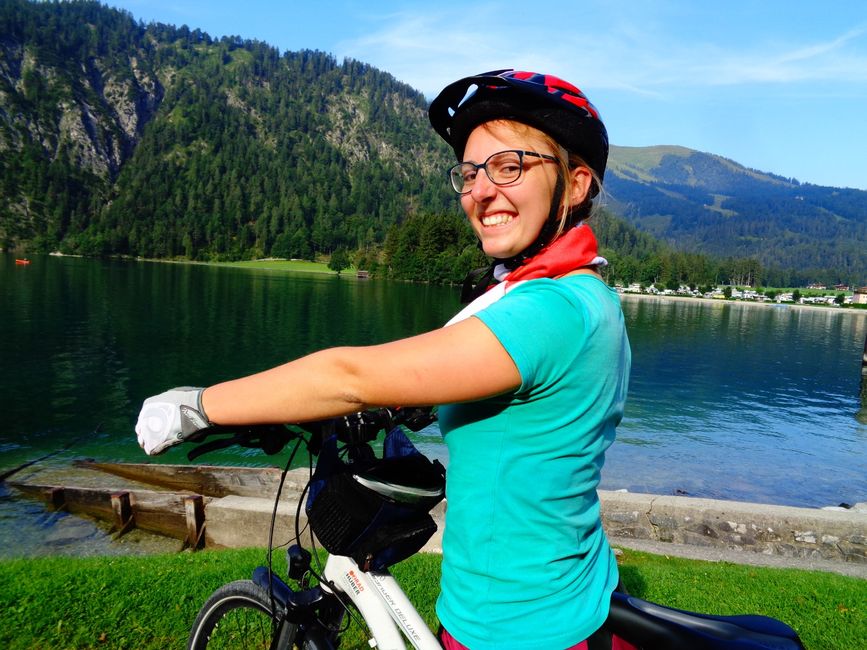20 train journey - cave - nice Bulgarians
نشرت: 03.10.2020
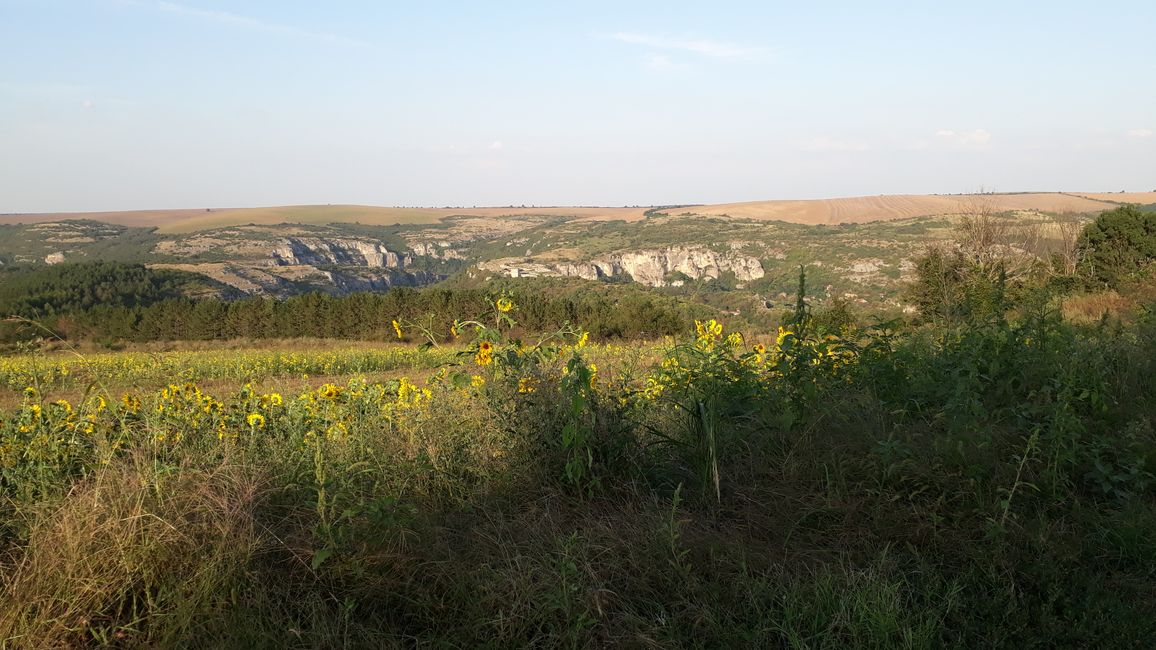
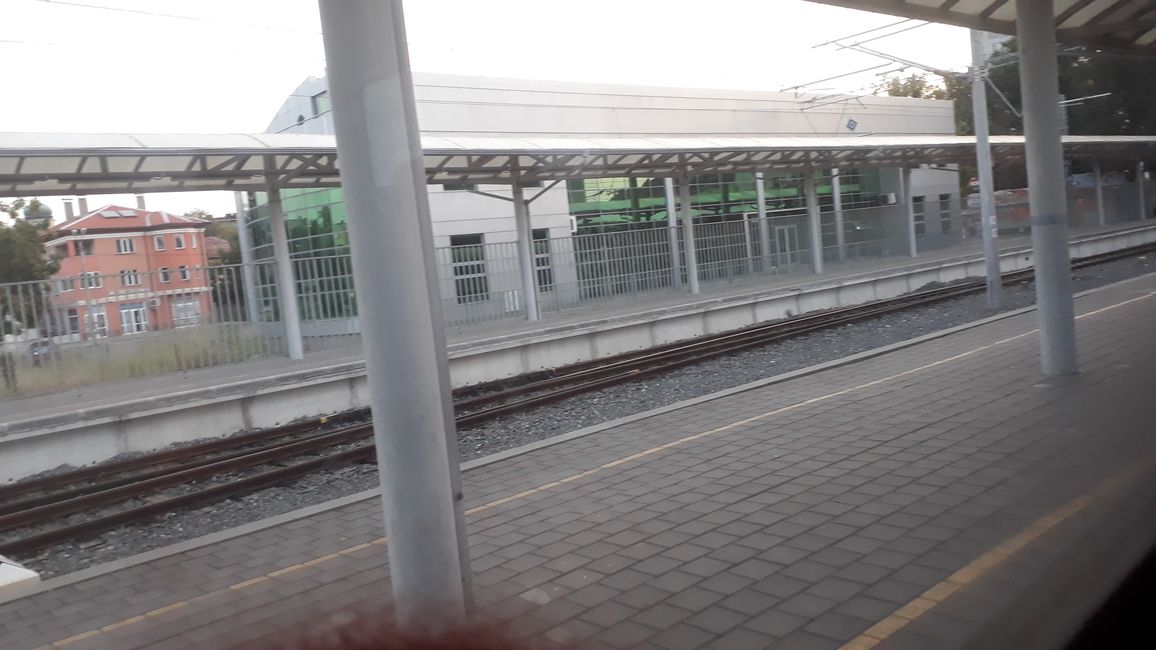
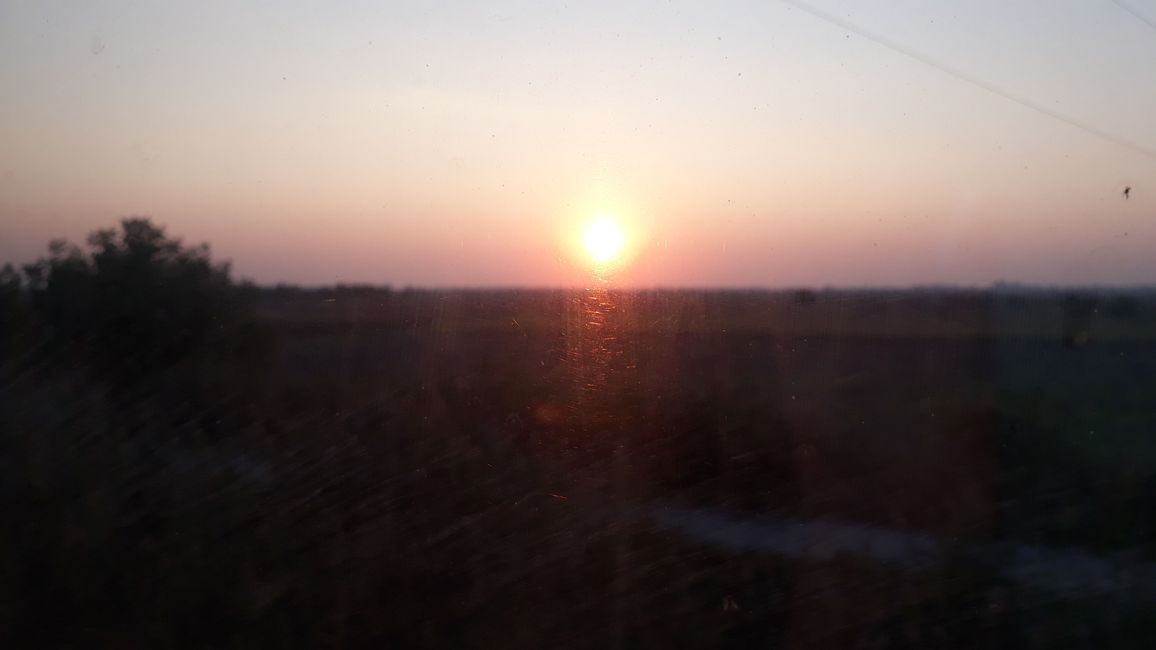
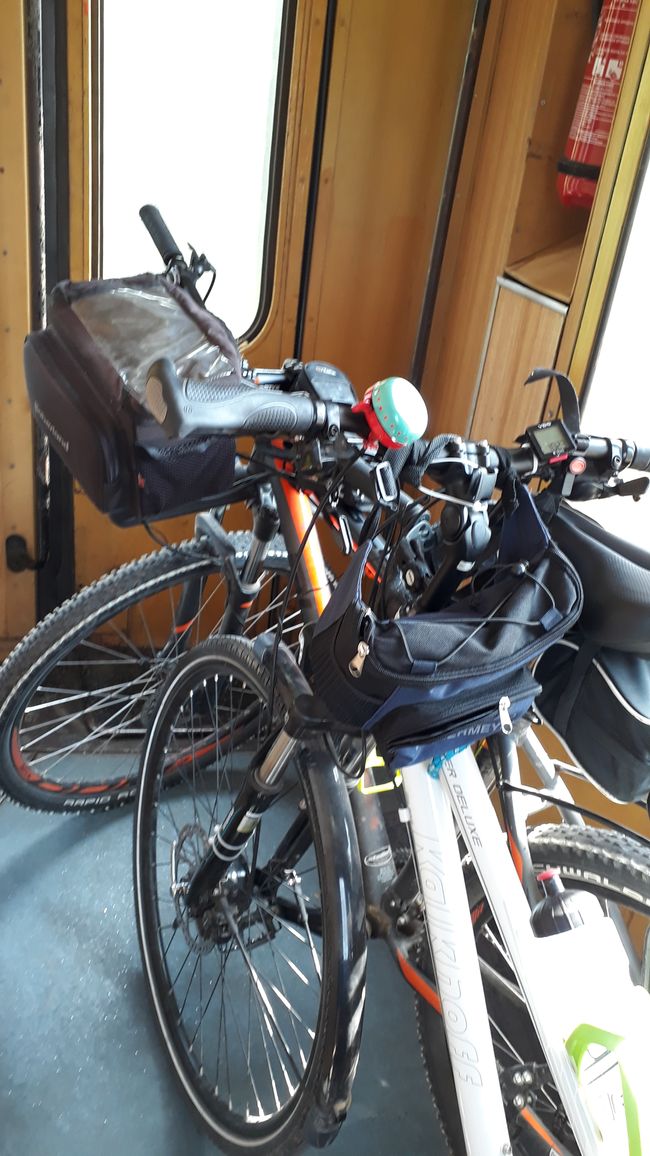
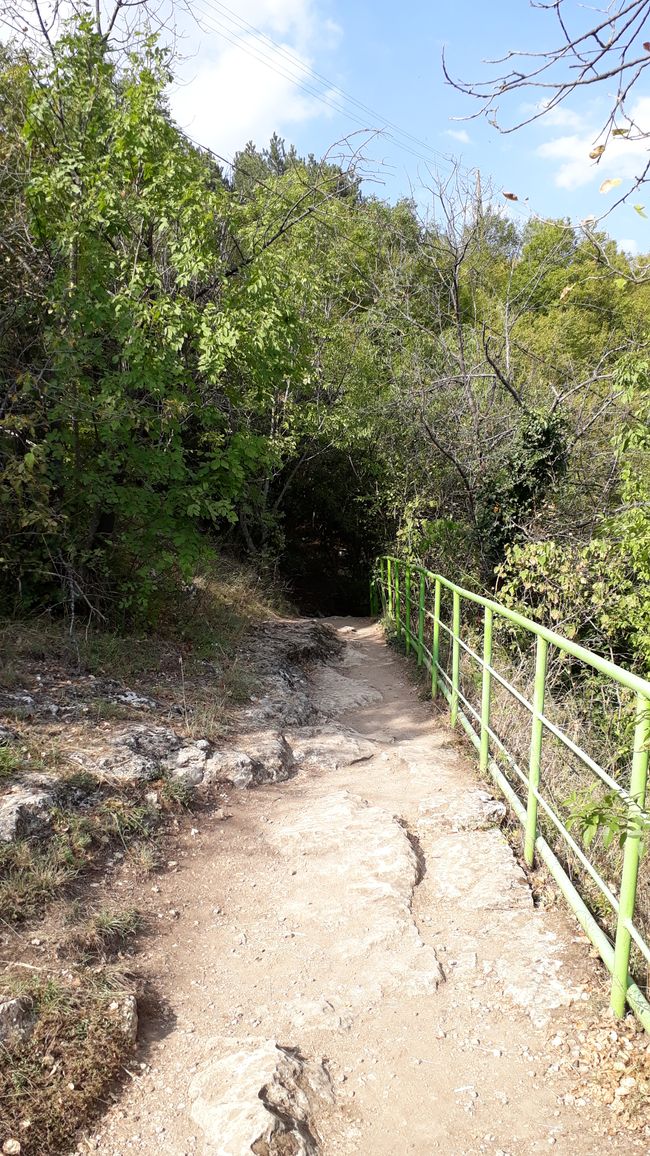
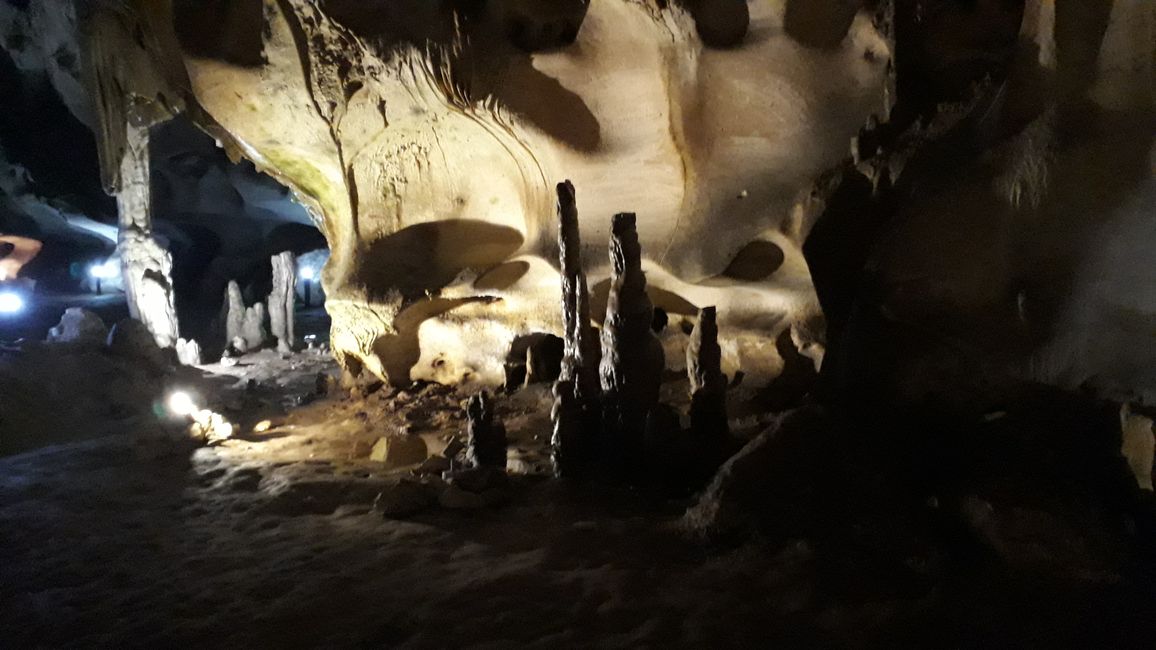
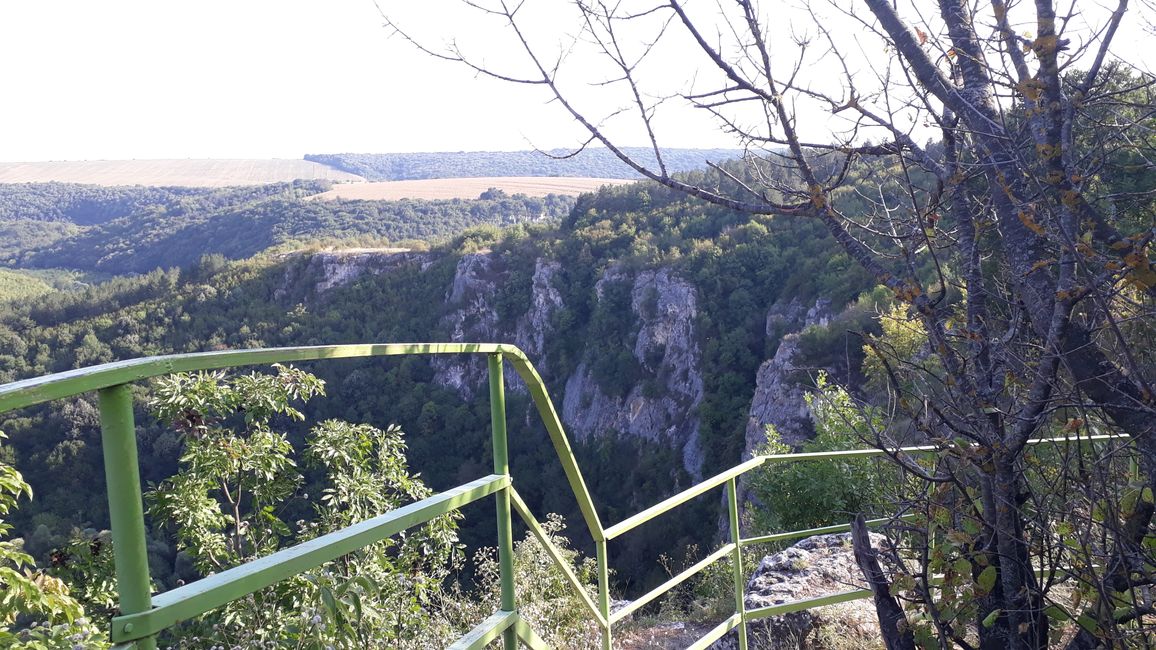
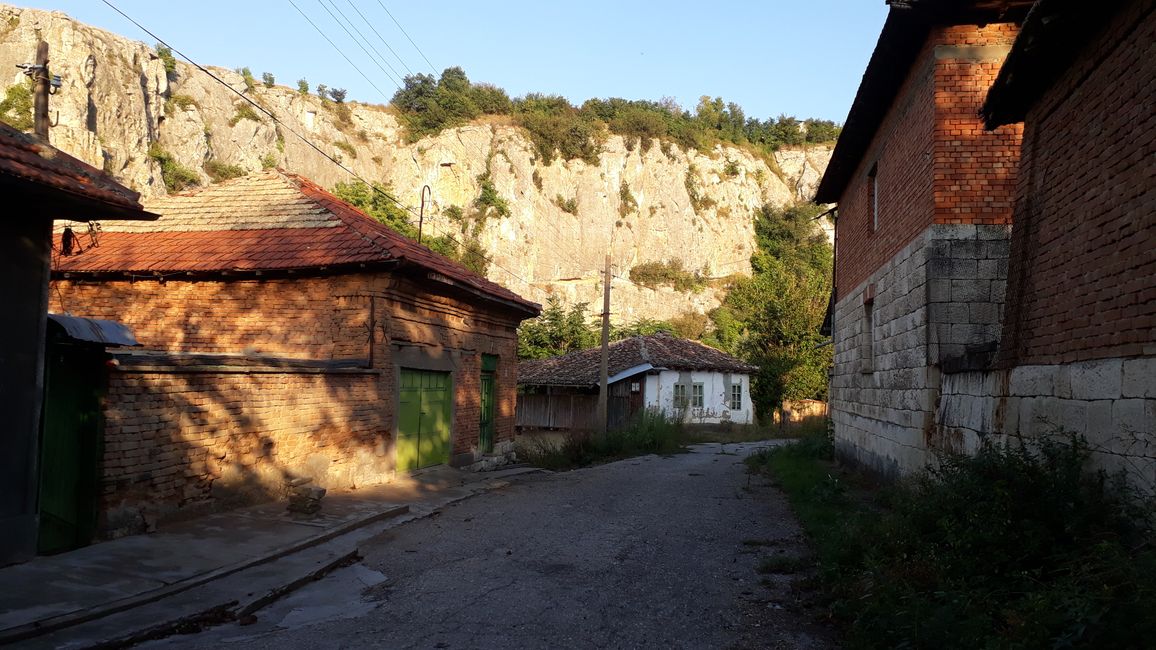
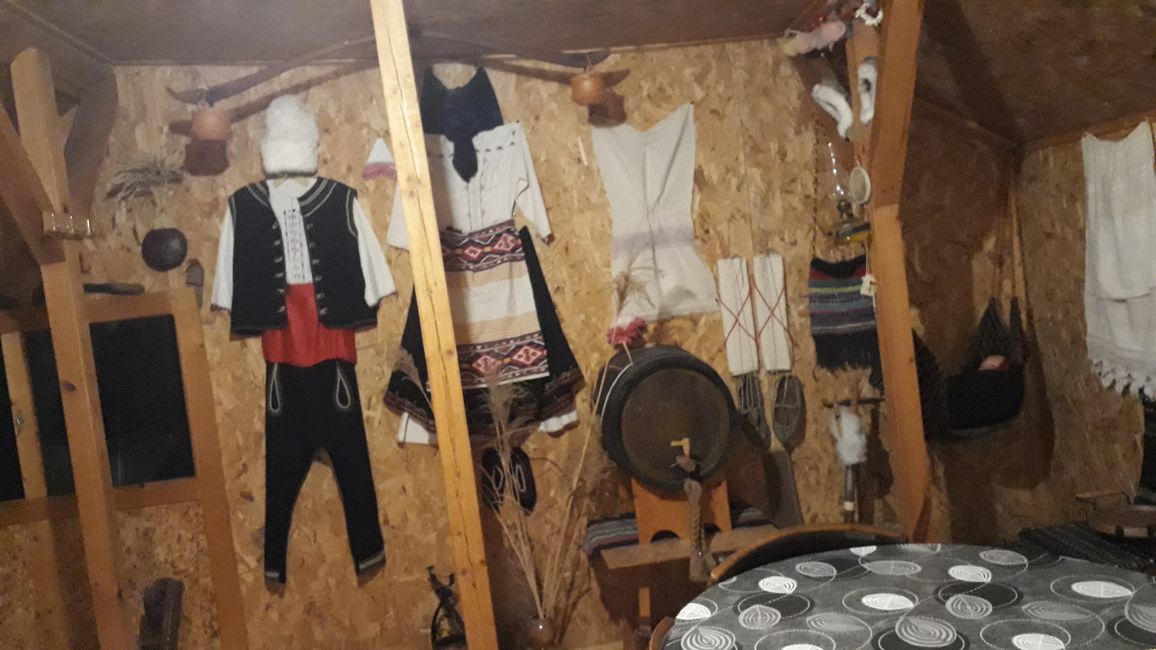
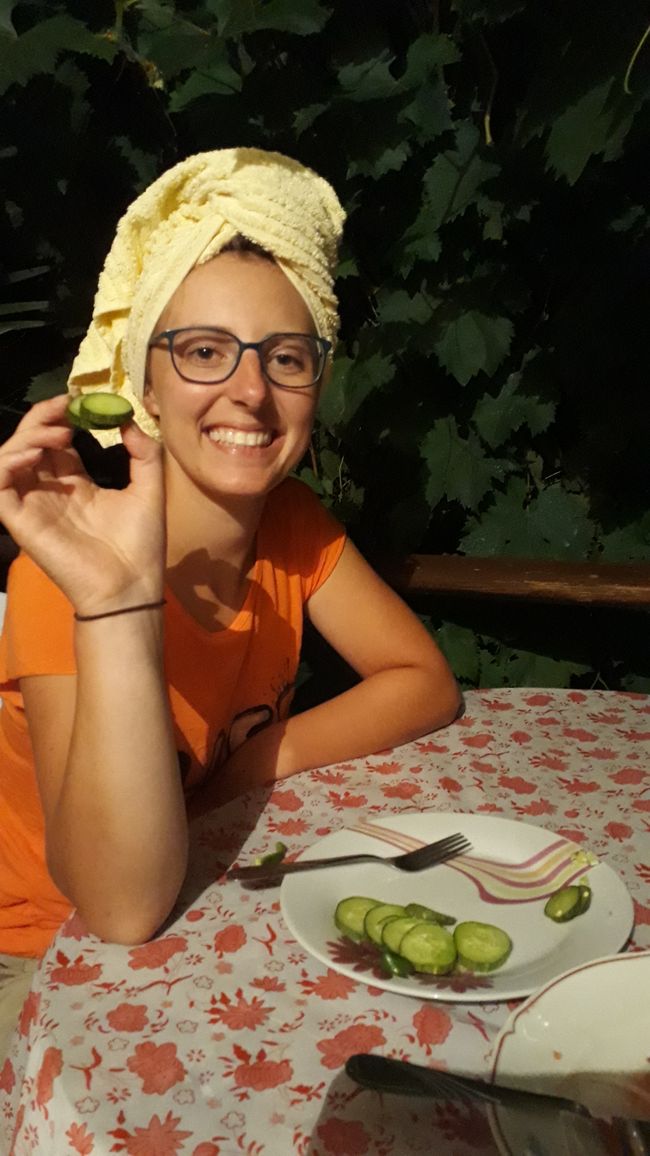
اشترك في النشرة الإخبارية
Friday, 24.8.2018
Route: Danube Cycle Path (Vidin - Cherven)
distance covered: 28 km
Highlight of the day: everything went smoothly with the train, many offers of help, the private accommodation, the cave
We got up very early, at 5:50, but thanks to the one-hour time difference in Bulgaria, it was actually 4:50. We quickly got ready and drove to the train station. It was slowly getting light. A train was already there when we arrived 20 minutes early. Because there were already quite a few people there, we simply asked a man who looked "international", meaning he was wearing a fanny pack and was not as dark-skinned as everyone else. He told us that the train was going to Mestra, so we packed up our bikes and carried them into the train. There were no special bike compartments or entrances, instead we had to carry our bikes up very narrow, steep stairs into the tight train. We wanted to just put our bikes in the compartment, but a conductor signaled to us in sign language that we should put them elsewhere. With great effort, we managed to squeeze them into a small space and sat down in the four-person compartment in front of it along with our luggage.
As we set off shortly afterwards, the train was comfortably occupied, there was someone sitting in every seating group. Julius passed the time by sleeping, and I looked out of the window. At first, there was a lot of flat land with wide fields and nothing else. Then we drove through a few really small villages, where we also made stops. The half of the roofs had collapsed, the houses were often tiny and run-down, not very nicely renovated, the gardens looked like they were really used, but they were not as neat and tidy in rows like often in Germany. And again many sunflower and cornfields. Later we passed by a few old company premises, large areas with huge companies. However, the windows were broken, the plaster was peeling off, everything was rusted, nothing was being worked on anymore. Julius had bought bread rolls with quark filling at the train station before we set off. Well, hunger drives it in, not bad, but way too much quark. That's how it went. The closer we got to Mestra (which is not far from Sofia), the more hilly the landscape became. At some point we saw a huge mountain range, surrounded by flat land and then this wooded mountain range. The landscape with its many hills with shrubs and animals (goats and sheep) also reminds a little bit of Greece.
At the stop before Mestra, we started to get our bikes out again. I can understand that our fellow travelers were a bit annoyed with us, but there was no other way. Our bikes were too wide for the narrow aisles even without luggage. So we stood at the entrance and waited, because the train was supposed to arrive at '40, we had to change trains and the connecting train would then depart at '51. At '40 we stopped, but there was no platform. In the four-person compartment opposite, there were policemen who gestured for us to chill, because it was not yet time. At the next stop at quarter past, the same thing happened again. Actually, we only arrived in Metra after the departure of the connecting train, where our train was still standing. We quickly left the first train and shouted over to the conductor of the connecting train, asking if it was the train to Ruse. He nodded. There was still a young man standing next to him who obviously understood us. Together we hoisted our bikes up. We put them in the last carriage. There was a window to the back, opposite was a toilet. If you had to go in there, it would be quite a struggle.
We sat down in a compartment where an older couple was already sitting, a middle-aged woman with a lot of makeup and the man from the boarding, who apparently understood us. And he actually understood us, because he was German, originally from North Rhine-Westphalia and now a Waldorf teacher in Munich. We chatted with him a little bit, he seemed to be a really nice guy. His name was Nick. And Nick studied art history and philosophy, which says a lot about him. He is nice, but different. Julius and I both estimated him to be about 35 years old, he is traveling alone with his backpack and his Interrail ticket. He went from Italy to Greece by ferry and from there he traveled by train back up. However, he seemed a bit clueless to us, because he told us that he had once asked someone how to get to Sofia in Macedonia. He wanted to go to Bucharest, although the train only went to Ruse.
In addition to the conversation with him, we also looked a bit at Julius' fire department magazine and the maps, and after the older couple got off, the overly made-up woman joined the conversation. And she spoke in German, which she had learned in her younger years. However, she only talked, we were not allowed to ask her any questions. It was mainly about her daughters, because the younger daughter is a foreign correspondent for Bulgarian news. She also showed us numerous photos.
Traveling by train in Bulgaria is quite funny actually, because the trains make a lot of noises that you don't really hear in German trains, for example the brakes. And there is really a hole in the floor in the toilet, which means you feel a draft down there! We arrived in Dve Mogili at quarter to 3, we had enough time to get off, we got off and everything went well. That's better than sometimes with Deutsche Bahn.
Right at the train station, we looked at the map when suddenly a slightly worn-out middle-aged woman approached us and offered us her help in German, saying that we could sleep at her place, and why did we get off in Dve Mogili anyway, and what are we doing here, because she had already worked in Germany and everything in Bulgaria is shit and we could sleep at her place. It took a while to convince her that we wanted to continue. Then we drove in the direction she had shown us and came to the main road of Dve Mogili. The lanes were separated by a green strip, on which a small kiosk stood. There, among others, a young man sat who shouted something to us and waved us over. So we sat down with him in the café, because he wanted to have a coffee with us. He told us in his limited German that he works in Germany and Bulgaria is shit because there is no work and no money there. It took a bit with the coffee, and in the meantime his colleague, who also speaks German, came. The two of them left us, but there were still several people of all ages in the kiosk. We bought some water because ours was empty. Just as we were about to get up and leave, the woman at the next table was picked up with a Maxi Cosi by a young man. The young woman, presumably the sister-in-law and aunt, said something in Bulgarian to the man, I only understood "nemjez", which means "German" in translation. Then he came to our table and again offered us his help in German because he was working in Germany. Compared to the two before him, he spoke impeccable German.
Then we set off. After Dve Mogili, it was very hilly, a lot of uphill and downhill. We also visited the Orlova Chuka Cave, which is 4 km off the path. It is Bulgaria's second largest cave. The landscape there has many rocks and then it goes steeply downhill. We parked our bikes and walked to the ticket counter. We bought a ticket and then had to wait three quarters of an hour until 5, because tours are only offered at every full hour. Besides us, a Bulgarian couple around 55 years old and a woman with 2 daughters participated, who were something other than German, English, French, Romanian or Bulgarian, I think they were Armenians. Now we didn't understand Bulgarian and our guide didn't speak English, but French, because he had worked there before. So he told everything in Bulgarian, in Romanian for the Armenians, and then in French for me. The tour itself was cool, but it would have been even better if we had understood the language better. The guide was a bit of a showman and made jokes, told interesting anecdotes and even sang. The cave was large and branched. We were allowed to climb through the corridors in some places. There were also some stalactites, but there you were allowed and should touch them. Overall, we were supposed to touch a lot, because there were legends and healing water and miracle spots to marvel at everywhere. Once we also saw excavations of Neanderthals and allegedly there is a white bear and many bats in the cave. The guide told us that in the "great hall" of the cave, the Russian state orchestra had already played in the 1960s. After three quarters of an hour in the 14-degree cold cave, the tour was over and we started cycling again.
We went to Cherven. Actually, we wanted to visit the fortress there, but it was simply too late for that. We had also booked an accommodation there, but we couldn't find it immediately. The whole area here is on a kind of plateau and Cherven is located in a basin. We drove down there. But we didn't find the accommodation. We had to go to house number 8, but house number 8 turned out to be a really old, dilapidated farmhouse. An old man came out who didn't understand us, and we didn't understand him either, but when we said "Haus Petrova", he knew what we were looking for and sent us back up the mountain on the other side. We cycled up again, almost the same way we had gone downhill before.
The House Petrova was very pretty! It belonged to an older couple. He had studied linguistics, German, English and French, and besides the guest house, they also have their own house and a garden. Everything was nicely renovated and in top condition. There must be money there. Our accommodation consisted of a room that reminded me of my grandmother's in terms of layout and furnishings, a bathroom, and a living room kitchen area. It was a self-catering kitchen, so everything was there except food. It smelled old, but not unpleasant. On the back wall there was Bulgarian traditional clothing. But we didn't sit there, but on a rooftop terrace belonging to the guest complex. The hostess then brought us her own cucumbers, tomatoes, onions, and peppers, very delicious. I made us a salad. Later our landlord came up again and pointed out his homemade schnapps to us. Of course, we tried it: it was clear. It was still very cozy there.اشترك في النشرة الإخبارية
إجابة
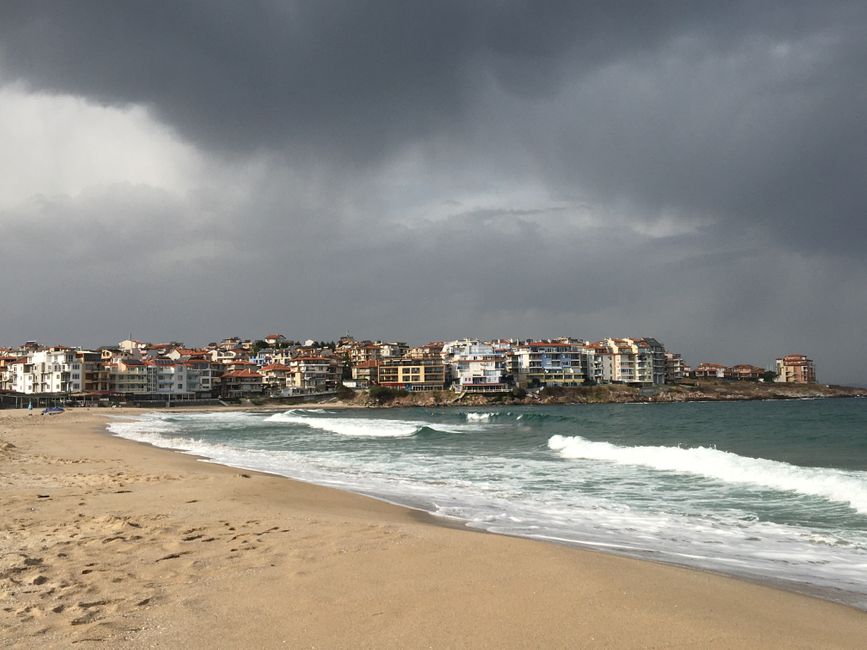
تقارير السفر بلغاريا
